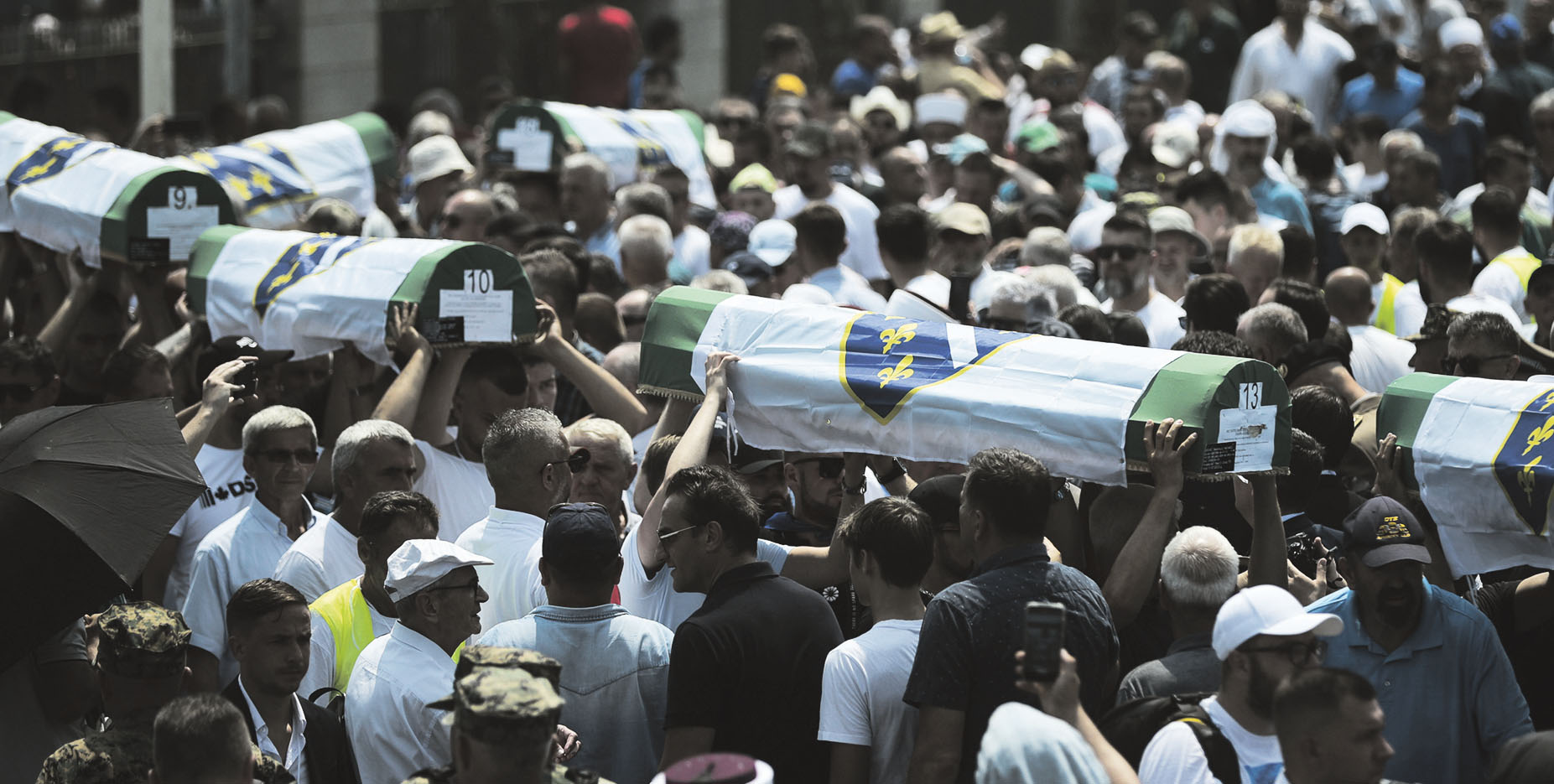
Elham Asaad Buaras
Five men suspected of participating in a July 1995 genocide in Srebrenica during the Bosnian war were arrested on September 12.
Officers also conducted searches and confiscations during their operation in several towns in Republika Srpska, a Serb-run entity comprising roughly one-half of Bosnia’s territory, according to a statement by Bosnia’s State Investigation and Protection Agency.
The men arrested were former Bosnian Serb army officers and soldiers who allegedly helped capture and kill around 70 men, boys, and one woman during the Srebrenica massacre. Most of the thousands of victims were Bosniaks, a majority Muslim ethnic group. Two UN courts have declared the brutal executions in the late days of Bosnia’s 1992–95 war an act of genocide.
Bosnian Serbs, however, have refused to acknowledge the scope of the crime.
Though decades have passed since the massacre, in which Bosnian Serb troops killed over 8,000 men and boys, the remains of victims are still unearthed from mass graves around Srebrenica. Bosnian Serb troops moved the bodies in
the aftermath of the killings to try to hide the atrocity.
Bosnia’s conflict ended in a US-brokered peace agreement in late 1995, which created two entities: Republika Srpska, the Serb-dominated one, and a Bosniak-Croat one. Bosnia’s two autonomous regions are tied loosely by joint institutions.
Ethnic tensions and a drive by Serbs to separate from the joint state with Bosniaks and Croats continue to plague the country. Nationalist Bosnian Serb leader Milorad Dodik has faced US and British sanctions for his separatist policies, and four other Bosnian Serb officials were sanctioned in July for passing a law the US calls a “brazen attempt to undermine state institutions”.
Photo: Thousands assemble at a memorial cemetery in Srebrenica, Bosnia and Herzegovina, on July 11, to commemorate the 28th anniversary of the 1995 slaughter and to bid farewell to 30 newly identified genocide victims. (Credit: Samır Jordamovıc/Anadolui Agency)